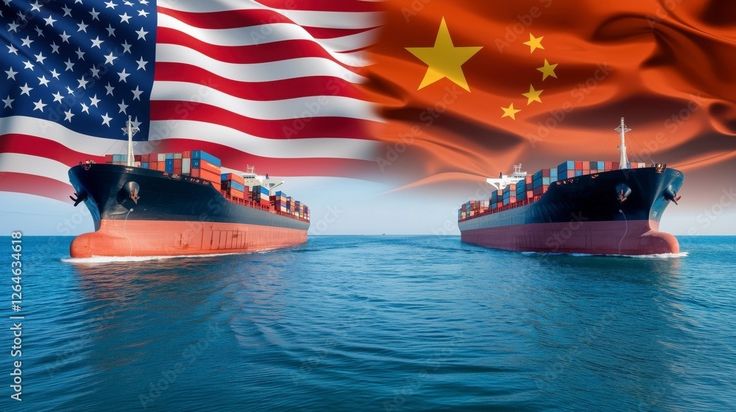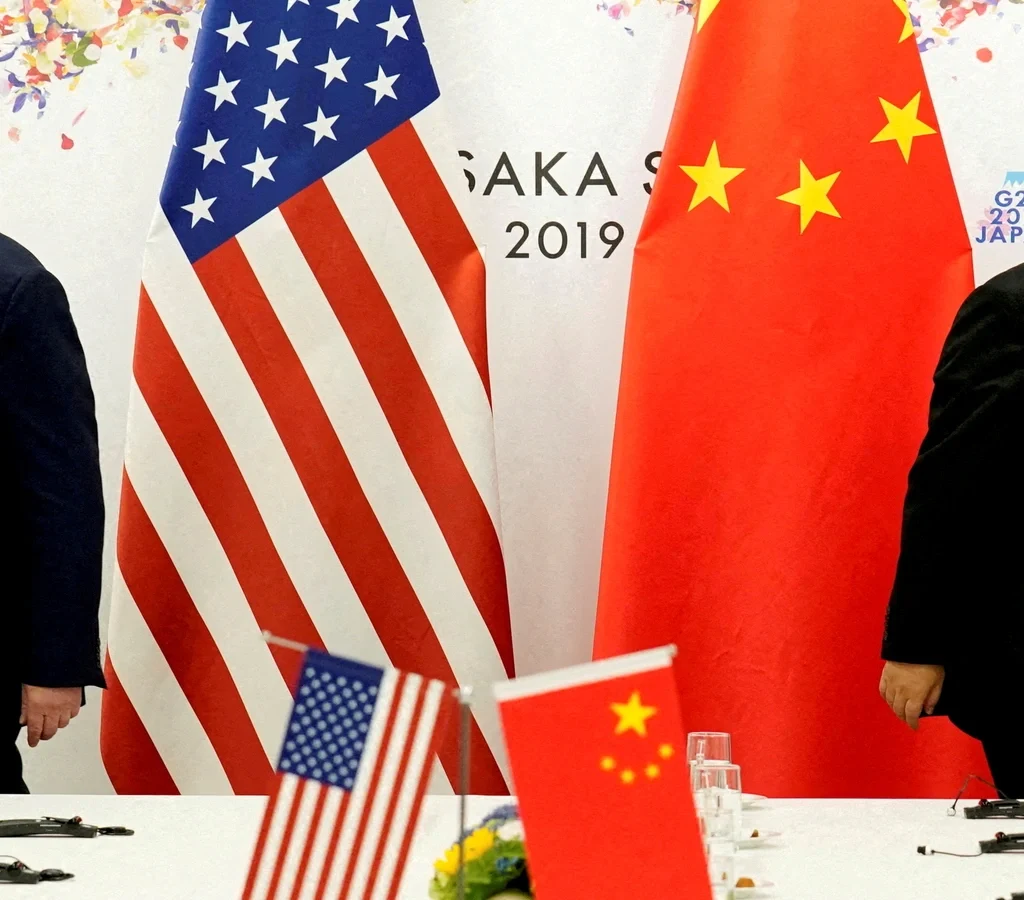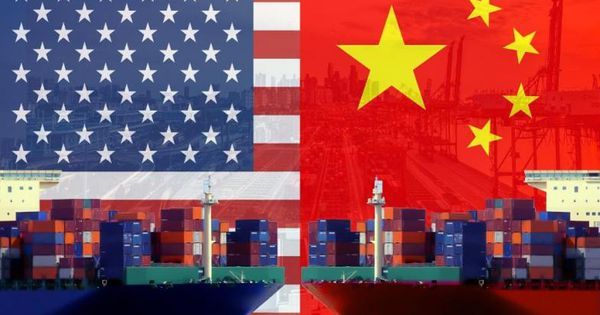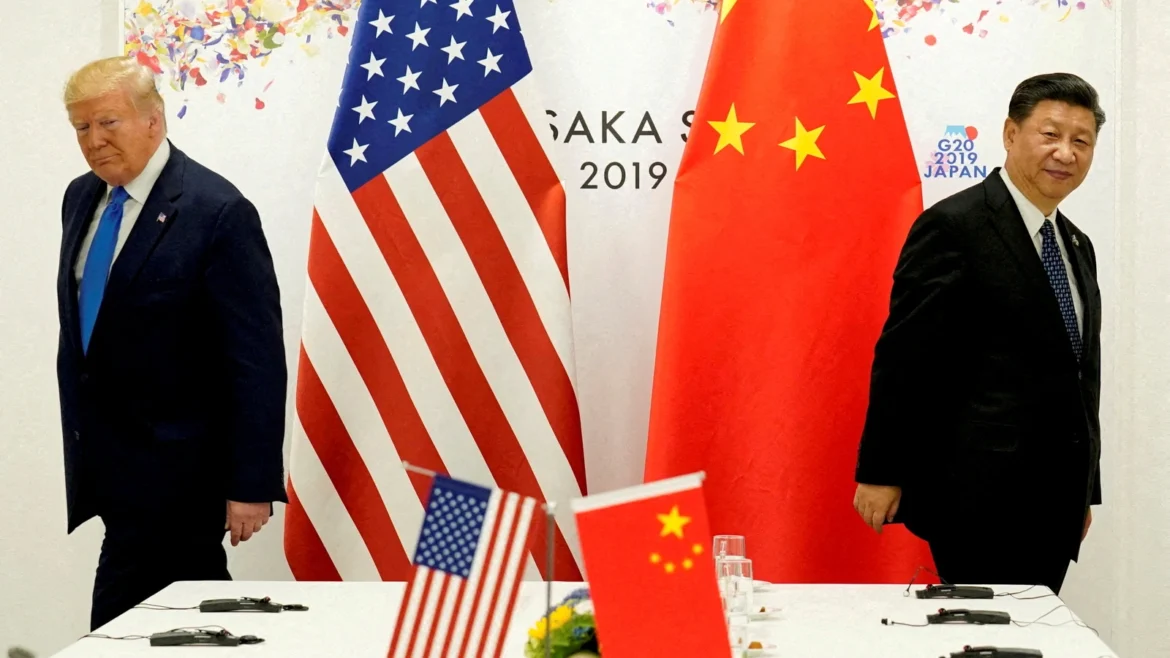In recent years, trade negotiations between the United States and China have become a focal point in global economic discussions. With both nations holding significant economic power, the stakes in these talks are higher than ever. U.S. negotiators face the challenge of balancing multiple objectives — from reducing the trade deficit with China to ensuring economic security for the country in a rapidly changing global market. But how can the U.S. effectively counter China while managing its relationships with other global players? The solution lies in a strategic, multifaceted approach that includes strengthening enforcement, attracting investment, and reducing reliance on Chinese goods.

1. Strengthening Enforcement to Ensure Fair Trade Practices
One of the most effective ways for the U.S. to counter China’s economic influence is by improving the enforcement of existing trade agreements. While some countries may illegally transship Chinese goods through third-party nations to avoid tariffs and export controls, strengthening enforcement mechanisms can help curb these practices. By prioritizing talks with “connector countries” such as Mexico, Indonesia, and Vietnam, as well as key hubs like Malaysia, Singapore, and Turkey, the U.S. can set up a system that makes it more difficult to bypass regulations.
Improved enforcement doesn’t mean absolute control, but it does mean providing partner countries with the resources and technology needed to track and prevent illegal activities. Moreover, sharing more information with these countries can help identify and eliminate instances of Chinese goods being dumped in international markets. This proactive approach not only protects U.S. interests but also shifts the dynamic with trading partners from contentious to cooperative.

2. Attracting Investment in Critical Sectors
Another key tactic for reducing reliance on China is by attracting investments into strategically important sectors. The U.S. is vulnerable in critical areas such as semiconductor production, critical minerals, and shipbuilding, which are heavily dependent on China. By redirecting investments into these sectors and working with global allies, the U.S. can lessen its dependence on Chinese supply chains.
Investment into these sectors will take time to bear fruit, but the momentum can start with strategic announcements that signal commitment to innovation and diversification. The U.S. government can foster this investment by offering incentives, subsidies, and creating a conducive environment for businesses to thrive. This will not only reduce the dependency on China but also strengthen America’s position in key industries for the future.

3. Reassessing U.S. Reciprocal Tariffs to Encourage Long-Term Shift
Perhaps the most immediate and impactful step in countering China is reevaluating and removing reciprocal tariffs that have been placed on key trading partners. These tariffs have significantly affected countries like India, Vietnam, and Indonesia, which are considered part of the “China+1” strategy. Many multinational corporations have already started shifting operations from China to these nations due to their lower operational costs, and the U.S. can further encourage this shift by removing punitive tariffs on these markets.
By providing targeted exemptions to tariffs, the U.S. can effectively promote diversification in its supply chain, making it more resilient in the long term. A more diversified trade ecosystem will not only reduce over-reliance on China but will also create opportunities for other markets to grow, enhancing global economic stability.
4. Building a Coalition for Long-Term Success
The journey to reduce dependence on China will take time and require significant multilateral cooperation. A broader, more inclusive approach to trade talks with key countries in Asia, Latin America, and Europe will be essential for the U.S. to effectively counter China’s influence. The goal is not merely to isolate China but to create a balanced, diverse global trade network that ensures all countries can thrive independently while collaborating on shared economic interests.
As U.S. officials continue their trade discussions, it’s vital that they work toward aligning trade rules and fostering partnerships with countries that share similar objectives. Derisking supply chains, investing in innovation, and improving trade enforcement are just the beginning of a comprehensive strategy that will help ensure America’s long-term economic security and success in the face of China’s growing economic presence.

Conclusion: A Stronger Future for U.S. Trade Relations
In conclusion, countering China in trade talks isn’t about taking a combative approach; it’s about taking calculated, strategic steps that will benefit the U.S. in the long run. By strengthening enforcement, attracting investments into critical sectors, and removing barriers such as reciprocal tariffs, the U.S. can not only counter China’s growing economic influence but also ensure a more resilient and diversified global trade system. The journey to derisk from China may take years, but these strategic steps will help lay the groundwork for a more secure and prosperous future.
Author Profile
- Syed Tahir Abbas is a Master's student at Southwest University, Chongqing, specializing in international relations and sustainable development. His research focuses on U.S.-China diplomacy, global geopolitics, and the role of education in shaping international policies. Syed has contributed to academic discussions on political dynamics, economic growth, and sustainable energy, aiming to offer fresh insights into global affairs.
Latest entries
 U.S. Foreign PolicyFebruary 2, 2026AI and Grand Strategy: The Case for Restraint – Navigating the Future of American Power
U.S. Foreign PolicyFebruary 2, 2026AI and Grand Strategy: The Case for Restraint – Navigating the Future of American Power National SecurityJanuary 31, 2026Treating China’s Connected Energy Systems as a National Security Risk
National SecurityJanuary 31, 2026Treating China’s Connected Energy Systems as a National Security Risk Global HealthJanuary 29, 2026The Future of the WHO—and How the United States Can Shape It
Global HealthJanuary 29, 2026The Future of the WHO—and How the United States Can Shape It Global TradeJanuary 22, 2026Trump Cancels Tariffs on European Nations Over Greenland Pursuit?
Global TradeJanuary 22, 2026Trump Cancels Tariffs on European Nations Over Greenland Pursuit?


